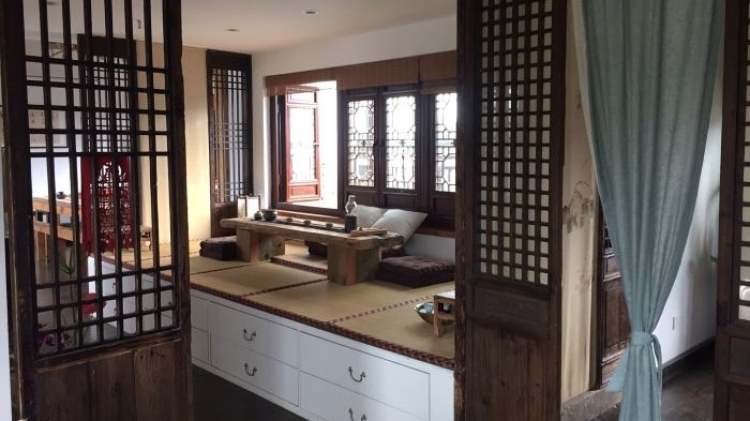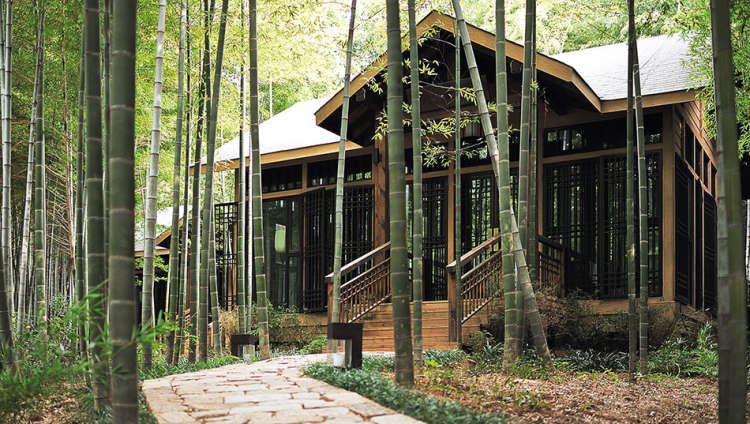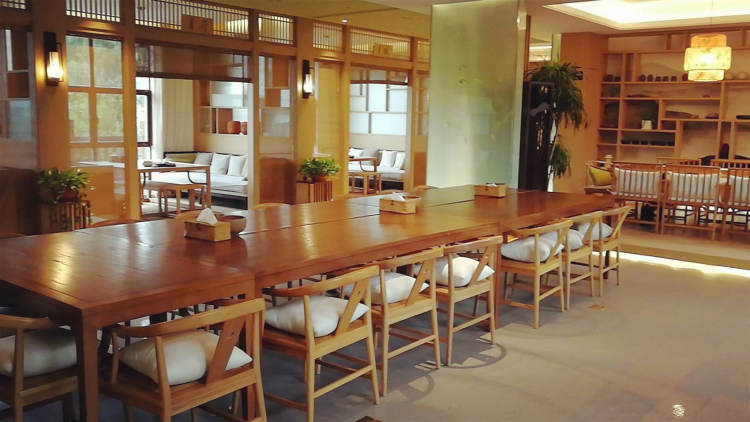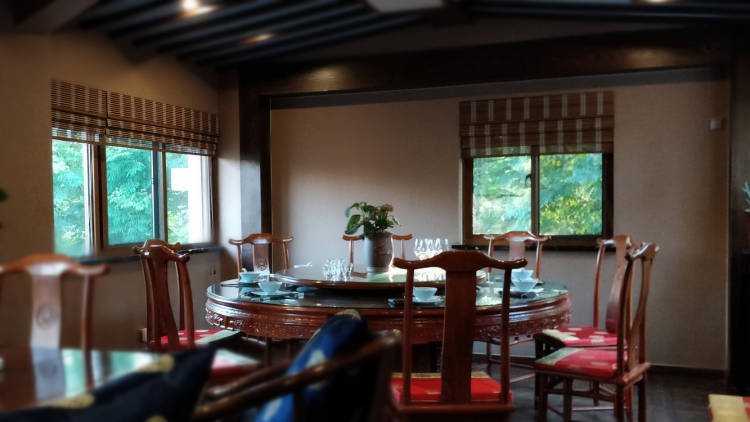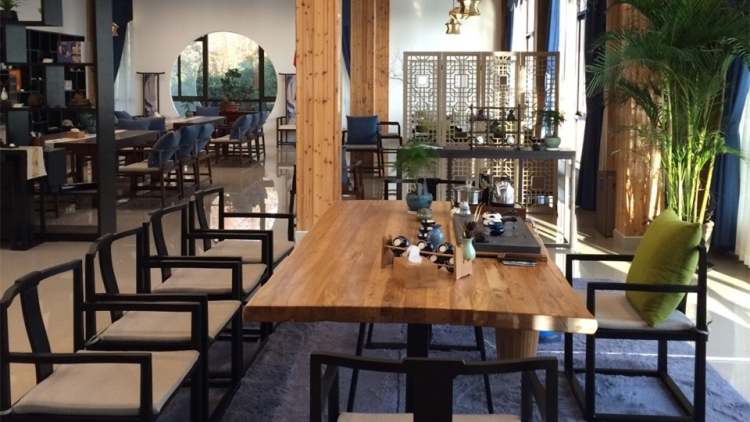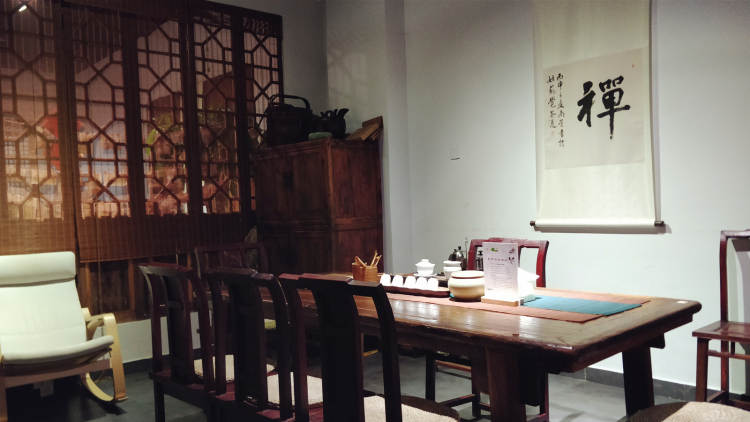Although Xietang Old Street is a modern reconstructed commercial block, it reproduces the simple charm of Jiangnan. Sanshuiyuan Teahouse is one of the most senior teahouses in Xietang Old Street, which complements the temperament of the old street, and the charm of the teahouse is more prominent.
In order to ensure the taste of the tea soup, the teahouse is equipped with Nongfu Spring as the tea water. Tea sets made of glass, purple sand, white porcelain, celadon and other materials are dazzling to ensure the quality of the corresponding tea soup. Whether it is a tea tray made of solid wood or black gold stone, it can be combined with the quaint indoor environment to give diners an elegant enjoyment. Combined with the overall atmosphere of Xietang Old Street, the ancient and simple Sanshui Garden is worthy of praise.
In terms of tea, Sanshuiyuan chose to cooperate with suppliers from all over the world, and did not show a special preference for specific tea varieties. According to the store, the tea leaves that can be included in the tea list are all of the best quality and are delicious. The most popular among tea customers is Oriental Beauty, which is a special tea produced in Taiwan, because the tea buds are white and significant, and it is known as Baihao oolong tea. Its most distinctive feature is its unique honey and ripe fruit aroma, because the tea cyanine must be bitten by the small green leafhopper, and the tea enzymes in it can be mixed with insect saliva to produce a special honey and ripe fruit aroma. Because of this, pesticides cannot be used in tea production, and the yield is scarce. The tea soup is refreshing and vaguely exudes a sweet smell, and at the same time, it is not easy to get greasy, and you will never get tired of drinking it for a long time. As for the common famous teas such as Biluochun in the Ming Dynasty and Tieguanyin in Anxi in the store, they also have good performances, so I will not repeat them here.
Sanshuien itself carries out tea ceremony training and baking training courses, so tea customers do not need to worry about the qualifications of tea masters, and the various small pastries in the store are quite good. If the tea guest needs a tea master to make tea on his behalf, he will need to pay a fee of 200 yuan. If the number of tea guests in the group is small, such a price is more expensive in Suzhou, and the minimum consumption of 88 yuan per person in the box is closer to the market price.



